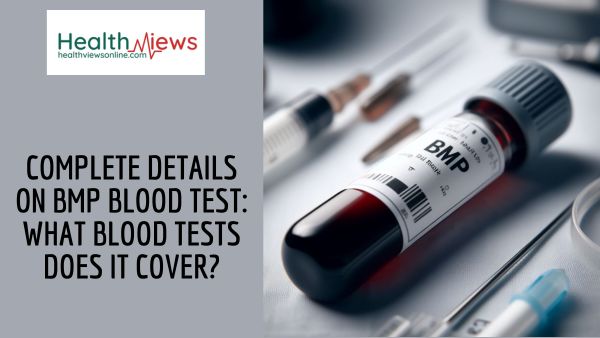What is the Kidney Function test?
The Kidney Function Test (KFT), also known as the Renal Profile Test (RPT) or Comprehensive Metabolic Panel (CMP) with eGFR (Estimated Glomerular Filtration Rate), is a series of blood tests used to evaluate the kidneys’ health and function. It gives vital information about how well the kidneys filter waste from the blood and regulate various electrolytes and metabolites. (Source)
The Renal Panel plays an essential role in the diagnosis and monitoring of renal problems such as chronic kidney disease, acute kidney injury, and electrolyte abnormalities.
Also, Read Kidney Cancer: Symptoms, Causes, Risk Factors, Diagnosis, Prevention, Facts
The Kidney Function Test measures several components of blood, including:
1. Blood Urea Nitrogen (BUN)
BUN is a waste product produced by the liver during the protein processing process. Elevated levels may indicate compromised renal function or other protein metabolism-related disorders.
What are the Normal Values of BUN?
7 – 20 mg/dL
What does low BUN indicate?
It could be a sign of liver illness, overhydration, or malnutrition.
What does high BUN indicate?
A high BUN may indicate renal disease, dehydration, or a high-protein diet.
2. Creatinine
Creatinine is a byproduct of muscle metabolism. High levels may indicate compromised kidney function, as the kidneys play an important role in removing creatinine from the blood.
What are the Normal Values of Creatinine?
For males: 0.7 – 1.3 mg/dL
For females: 0.6 – 1.1 mg/dL
What does low Creatinine indicate?
Low creatinine levels are less frequent but may be an indication of decreased muscle mass or other medical issues.
Also, Watch health views web stories: 7 Ways How Mental Health Affects Physical Health
What does high Creatinine indicate?
Elevated levels could be a sign of various renal diseases or reduced kidney function.
3. eGFR (Estimated Glomerular Filtration Rate)
This is a calculated estimate of how well the kidneys are filtering waste products from the blood. It indicates the overall function of the kidneys.
What are the Normal Values of eGFR?
90 mL/min/1.73m² or higher
What does low eGFR indicate?
This indicates diminished kidney function and could be a sign of renal disease or impairment.
What does high eGFR indicate?
Specific medical problems or drugs may cause an unusually high eGFR.
4. Serum Uric Acid
Elevated uric acid levels have been linked to illnesses such as gout and kidney damage.
What are the Normal Values of Serum Uric Acid?
For males: 3.5 – 7.2 mg/dL
For females: 2.6 – 6.0 mg/dL
What does low Serum Uric Acid indicate?
Low uric acid is less frequent but may be a sign of overhydration or certain hereditary diseases.
What does high Serum Uric Acid indicate?
Elevated levels may be linked to other medical disorders such as kidney disease, gout, or gout.
5. Blood Urea
Similar to BUN, this test measures the amount of urea nitrogen in the blood.
What are the Normal Values of Blood Urea?
7 – 20 mg/dL
Also, Read What Is Chronic Kidney Disease? Causes, Symptoms & Treatment
What does low Blood Urea indicate?
Low blood urea is less frequent but may be a sign of liver illness or malnutrition.
What does high Blood Urea indicate?
Increased levels of blood urea may be a sign of kidney disease, dehydration, or a high-protein diet.
6. Serum Calcium
This test, like BUN, measures the amount of urea nitrogen in the blood.
What are the Normal Values of Serum Calcium?
8.4 – 10.2 mg/dL
What does low Serum Calcium indicate?
Low calcium levels may suggest hypoparathyroidism, vitamin D inadequacy, or kidney illness.
What does high Serum Calcium indicate?
High calcium levels may indicate hyperparathyroidism, some malignancies, or other health problems.
7. Serum Phosphorus
Since the kidneys are involved in controlling the body’s calcium balance, calcium levels can be affected by kidney function.
What are the Normal Values of Serum Phosphorus?
2.5 – 4.5 mg/dL
What does low Serum Phosphorus indicate?
It can occur as a result of starvation, certain genetic diseases, or hyperparathyroidism.
What does high Serum Phosphorus indicate?
Phosphorus levels that are too high may suggest kidney illness, hypoparathyroidism, or other health problems.
8. Serum Electrolytes (Sodium, Potassium, Chloride)
Kidney function can have an impact on the levels of these electrolytes, which are crucial for many biological processes.
What are the Normal Values of Serum Electrolytes?
Sodium (Na): 135 – 145 mmol/L
Potassium (K): 3.5 – 5.0 mmol/L
Chloride (Cl): 96 – 106 mmol/L
What do low Serum Electrolytes indicate?
These can be signs of electrolyte abnormalities, which are frequently related to kidney function.
What do high Serum Electrolytes indicate?
High levels of sodium, potassium, or chloride may indicate dehydration, renal failure, or other health problems.
9. Albumin
The liver produces albumin, a protein that helps regulate blood pressure and volume. Abnormal levels may signify renal disease.
Also, Watch health views web stories: 10 Essential Blood Tests to Get Annually
What are the Normal Values of Albumin?
3.5 – 5.5 g/dL
What does low Albumin indicate?
Low albumin levels can be caused by liver illness, malnutrition, kidney disease, or other medical issues.
What does high Albumin indicate?
High albumin levels are uncommon and may be related to dehydration or certain medical problems.
10. Total Protein
Albumin and other proteins are included in this measurement of the overall amount of protein in the blood.
What are the Normal Values of Total Protein?
6.0 – 8.4 g/dL
What does low Total Protein indicate?
This could indicate malnutrition, liver disease, or kidney disease.
What does high Total Protein indicate?
Elevated amounts might occur as a result of dehydration or certain medical disorders.





